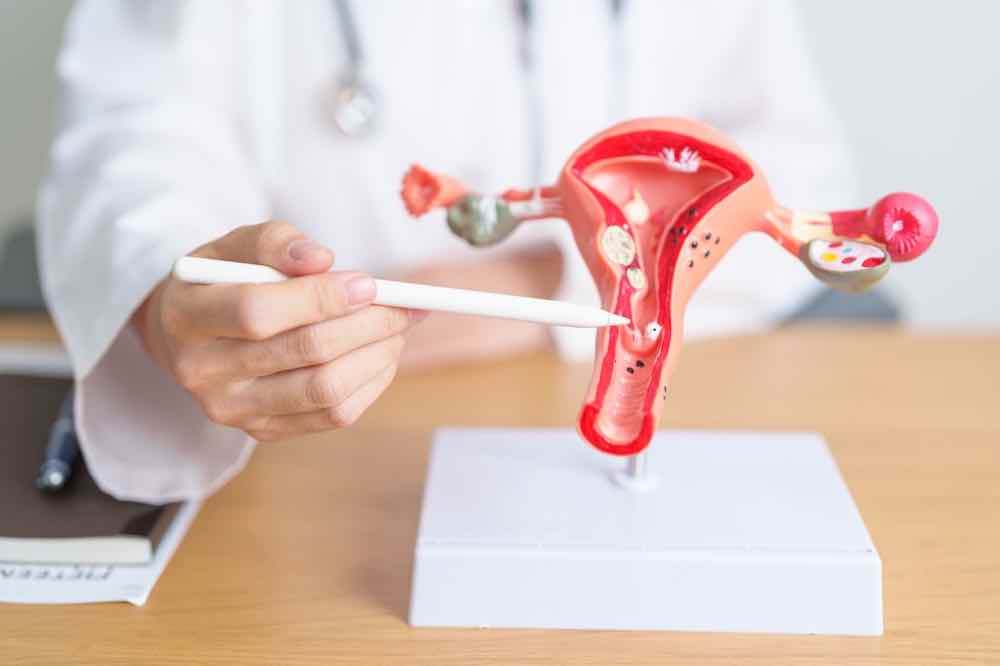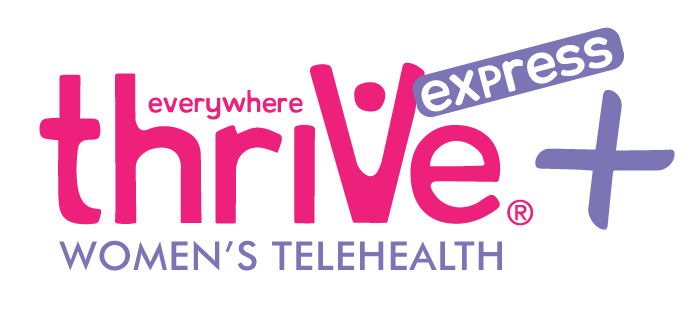The Lowdown on IUDs: What You Really Need to Know
Wondering about IUDs? Maybe you’re in a new relationship. Or maybe someone mentioned an IUD to you, and made you start thinking about things. Many ladies have questions about birth control (including the risks and side effects!) You might have questions like, “What about IUD insertion pain?” “Are there side effects?” “How do IUDs affect hormones?” Whatever reason you’re searching, I’m glad you’re here.
You’ve found ThriVe’s blog section, a safe space for women to find answers about sex, pregnancy, abortion info, STDs, and more. We offer no-cost services to women facing unplanned pregnancy, including pregnancy tests, ultrasounds, STD screenings, and emotional support. We’ll only ever share accurate medical info. Why? You deserve to know all the facts. You’re capable of making the best decisions for your own health.
So take a breath. You’re totally welcome here, no matter what your background is or where you are in your journey.

What Even Is an IUD?
Okay, so an IUD (intrauterine device) is a tiny, T-shaped device that a doctor places inside the uterus. An IUD is a type of contraception (something to try to prevent pregnancy).
There are two kinds: one is hormonal (it releases a hormone called progestin). This hormone thickens cervical mucus and keeps sperm from reaching the egg). It also makes the lining of the uterus thinner, and partially stops the body from releasing an egg1 The other is a copper IUD (it causes inflammation in the uterus that makes it toxic to eggs and sperm).2 These little devices can last anywhere from 3 to 10 years.3
But Does It Hurt?
I’m not gonna lie, girl — there may be some IUD insertion pain. Getting an IUD can hurt. It’s common to cramp, feel dizzy, or even faint when the doctor puts it into the uterus. And after the IUD is inserted, a pelvic exam will be necessary to make sure it hasn’t moved and to check for infection.1, 3
It’s important to know that contraception affects the body. It alters a woman’s hormones, and there are risks. If a woman has an IUD and starts feeling serious pain that doesn’t go away (or something just feels off), that could be a sign of something more intense. Looking for some pain management? It’s possible that the IUD may poke through the uterus or cause an infection. Always listen to your body and call your doc if it’s not feeling right. Ask about pain management, if you can take something like ibuprofen, and how to get better.
So, What Are the Risks?
No contraception is foolproof. IUDs do have risks, like having to worry about pain management. Make sure you have all the information you need so you can decide about IUDs for yourself:
– Perforation: It’s possible for the IUD to poke through the cervix or the wall of theuterus during insertion..
– Expulsion: Sometimes the IUD can move or fall out. The uterus can actually “cramp the IUD out.” Signs that the IUD is coming out include heavy bleeding and cramping, but somemight not feel anything.3, 2s. If it gets out of place (and sometimes even if it doesn’t!), it’s possible to become pregnant (if you’re sexually active).3
– Ectopic Pregnancy: If a pregnancy occurs with an IUD (which is possible with any form of birth control), it’s more likely to be ectopic. That means the pregnancy happens outside the uterus.1 This is serious, and requires medical help right away, even if a woman is considering abortion.
If you think you could be pregnant, come see us at ThriVe for a no-cost ultrasound. We’ll be able to tell what’s going on with your pregnancy.
– Mood Swings: Hormonal IUDs can mess with a woman’s mood. If you decide to try hormonal birth control, you might want to keep a record of how you’re feeling. If you start to feel depressed, hopeless, or start having mood swings, it could be a side effect. Your mental health is worth protecting.1
– No Protection from STIs: IUDs won’t protect a person from STIs. So if you’re not in a committed, long-term, monogamous relationship, you’ll be at risk.4
When Should You Be Worried?
Cramping after getting an IUD is expected, unfortunately. But if a woman is feeling things like:
| Pelvic pain | Fever |
| Heavy bleeding | Unusual or smelly discharge1 |
…then it’s time for her to call her doc. Like, right away. As women, we deserve great health, so we need to take care of ourselves. Contraceptive comes with risks, like having to worry about pain management, risks, and side effects. But no matter what, you are the one calling the shots. You get to decide to get all the information and take charge of your health and future. That’s good news! So is there a way to avoid the risks of things like IUD insertion pain, birth control hormones, and the chances of getting an STI?
Real Talk: The Only Foolproof Way to Avoid the Risks
Even a few years ago, this might have sounded old-school — but more and more women are deciding to take control of their health with celibacy. The only guaranteed way to avoid all of the risks of sex and mixed hormones is to hold off on having sex. When you’re not ready for the potential of pregnancy, STIs and birth control side effects, you’ve got a decision to make. Having sex when you’re not in a committed relationship = risks. It’s something to think about.
Here at ThriVe, we’re all about empowering women to make their own health decisions. This is your body. Your health. Your future. And you’re the one responsible for taking care of those things. No one should pressure you or force you into having sex before you’re ready. And truthfully, you deserve the space and time to make this big kind of decision on your own.
You’ve got goals and aspirations. We believe you’re capable of achieving them. Only you can make them happen. Join the movement of women taking charge of their future.
This isn’t a pledge or a morality check. Just you, getting informed so you can feel confident in your decisions. You’re worth it.
Got questions about contraceptive, postponing sex, pregnancy, or abortion info? We’re on your side. Really, no matter what you’re considering, we’re in your corner. We want to help you make your own health choices.

Check Out ThriVe for All the Deets
If you’re looking for straight-up, accurate info on all things women’s health, make sure to check out ThriVe’s other blogs. We’ve got tons of no-judgment, legit info about birth control, pregnancy, STIs — and tons of women’s health info. And if you think you might be pregnant, we’ve got your back with no-cost services, too.
Need a pregnancy test? Ultrasound? STI screening? ThriVe is your safe space. Our no-cost medical services will get you the answers you need. Make your appointment when you feel ready.
Sources:






